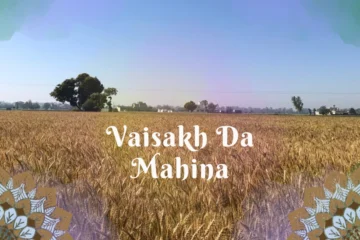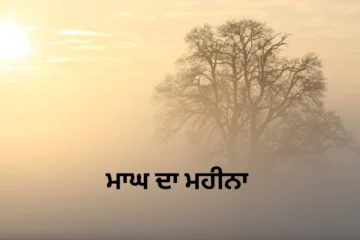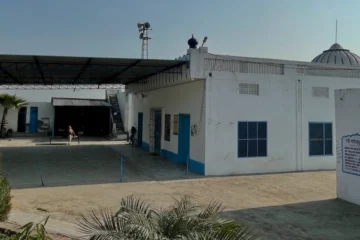
Diwali, known as the Festival of Lights, is one of the most cherished festivals in India. For the people of Raowal Village, Diwali holds special significance as it connects them to ancient traditions and values. Celebrated with devotion, joy, and a spirit of community, Diwali in Raowal brings together families, friends, and neighbours under the vast, starlit skies, illuminating the village with warmth and light.
The Spiritual Importance of Diwali
Diwali symbolizes the victory of light over darkness and good over evil. For the villagers, it’s not just a celebration but a reminder of spiritual values. They believe that lighting lamps and spreading joy serves as a gesture of welcoming positive energy and blessings.
Historical Background of Diwali in Raowal
The roots of Diwali in Raowal run deep, with elders often narrating stories of how their ancestors celebrated the festival. Passed down through generations, these tales emphasize the power of tradition and the resilience of cultural values. In Raowal, Diwali has always been more than just a festival; it’s a testament to their history and heritage.
Preparations for Diwali in Raowal
The excitement for Diwali starts weeks before the actual day. The entire village participates in cleaning and preparing their homes, as cleanliness is believed to attract good fortune. Every household is decorated with vibrant colours, flowers, and lights, creating a welcoming and festive atmosphere.
Diya-Making Tradition in Raowal
One of the unique aspects of Diwali in Raowal is the tradition of making diyas, or clay lamps, by hand. Many families spend time crafting and painting their own diyas, which are later used to light up homes and temples. The diya-making process is a communal activity, often bringing villagers together in workshops, allowing people of all ages to contribute.
Rangoli Art and Decorations
Rangoli art, a beautiful and intricate form of decoration, is a significant part of Diwali. In Raowal, families create colourful rangolis using natural dyes, rice flour, and flower petals. Common designs include flowers, peacocks, and religious symbols, which are believed to welcome prosperity and happiness.
Shopping for Diwali Essentials
The village markets buzz with life as Diwali approaches. People gather to buy essentials, including new clothes, sweets, and diyas. Local artisans set up stalls, selling handcrafted items that add a unique touch to each home’s decorations. The market scenes are vibrant, with people chatting, bargaining, and enjoying the festive spirit.
Diwali Eve Celebrations
On the night before Diwali, families come together for prayers and preparations. It’s a time for bonding and sharing stories. Children eagerly await the next day’s festivities, while adults engage in decorating homes and arranging flowers. The whole village resonates with a sense of anticipation and excitement.
The Main Day of Diwali in Raowal
The main day begins with early morning prayers, followed by offerings to deities, especially Goddess Lakshmi and Lord Ganesh. Each family sets up a small altar at home, adorned with flowers, fruits, and incense. Villagers visit the local temple, where collective prayers are held, seeking blessings for health, wealth, and prosperity.
Evening Festivities: Lighting the Lamps
As the sun sets, Raowal transforms into a luminous spectacle. Every home, street, and temple is decorated with rows of lit diyas, casting a soft, golden glow. Under the starry sky, the flickering lights create a serene and magical atmosphere, symbolizing the triumph of light over darkness.
Special Diwali Sweets and Feasts
Food plays an important role during Diwali. Raowal is known for its traditional sweets and delicacies made especially for the festival. Families prepare dishes like laddoos, barfis, and gujiyas, filling the air with tempting aromas. These treats are shared with neighbors and friends as an expression of goodwill and festivity.
Cultural Performances and Music
In the evening, the village square comes alive with music and dance. Folk performances, traditional music, and dance acts entertain everyone, bringing people of all ages together. These cultural activities are a way to celebrate heritage and pass on traditions to younger generations.
Fireworks Display in the Village

No Diwali is complete without fireworks, and Raowal has its own way of celebrating with a dazzling display. The fireworks light up the sky, creating a stunning visual display. Families gather to watch, sharing laughter and joy as they witness the beauty of colours illuminating the night.
Eco-Friendly Initiatives for Diwali 2024
This year, Raowal is taking steps toward a more eco-friendly Diwali. The villagers have pledged to reduce the use of plastic and focus on biodegradable materials for decorations. By opting for organic rangoli colours and limiting firecracker use, they are committed to celebrating in a way that honours both tradition and the environment.
Conclusion: Diwali as a Celebration of Unity and Light
Diwali in Raowal Village is more than just a festival; it’s a celebration of unity, tradition, and spirituality. Under the starry skies, the village lights up, showcasing the warmth and togetherness of the community. Through these rituals, Raowal’s residents honour their ancestors, cherish their values, and pass down the significance of Diwali to future generations.
FAQs: Diwali 2024 in Village Raowal
1. Why is Diwali celebrated?
Diwali symbolizes the victory of good over evil and light over darkness, celebrating spiritual enlightenment and prosperity.
2. How does Raowal differ in celebrating Diwali?
Raowal incorporates unique traditions like handmade diyas and community-wide preparations that reflect their local heritage.
3. What are some special dishes made during Diwali?
Popular sweets include laddoos, barfis, and gujiyas, all made with love and shared among family and friends.
4. Why is Diwali known as the Festival of Lights?
Diwali is called the Festival of Lights due to the tradition of lighting diyas and lamps, symbolizing the triumph of light over darkness.
5. Are there any eco-friendly practices in Raowal for Diwali?
Yes, Raowal is focusing on biodegradable decorations, natural rangoli colors, and reducing firecracker use for a greener celebration.


